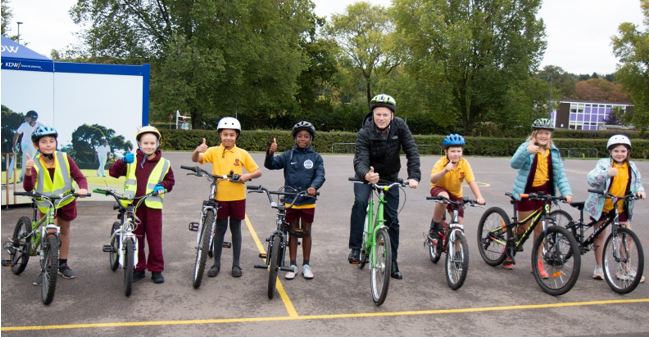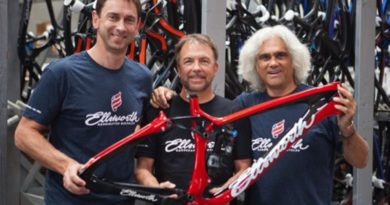Bikeability funding challenge draws active travel realities into sharp focus
At a time when increasing numbers are turning to public transport and active travel as a means to reduce costs, funding for Bikeability, the government’s national cycle training programme, which helps children and adults learn practical skills and understand how to cycle on today’s roads, has left one local authority looking to parents to pay for the funding shortfall.
For Trudy Harrison, the Parliamentary Under Secretary of State at the Department for Transport, herself a former school governor and Bikeability teacher, this must be particularly galling.
In stark contrast, this week has seen Tallinn, the Estonian capital city, announce a €100 contribution to purchasing a bicycle, for children ranging from 10 to 15, following successful completion of a training program similar in focus to that delivered by Bikeability.
“Our goal is to increase the safety of children in traffic, increase the number of cyclists among young people and promote healthy exercise. Passing the cyclist’s test ensures that the child can choose the right riding techniques and assess where it is safe to ride,” said Joosep Vimm, Deputy Mayor of Tallinn.
He continued: “The habit and skills of using a bicycle that have developed in a young person could remain with the children for life. In order for the price of a child’s bicycle not to be an obstacle and to give an encouraging signal to buy a bicycle, we want to support the purchase of this vehicle as a city.”
The initiative, seeking to encourage cycling as a mobility choice with a young audience, is similar in nature to that championed by Scottish Greens, who’d previously proposed a £100 grant, enable low income families to “ensuring more youngsters have access to bicycles would help them get to school.”
Research shows that “Low-income communities are more likely to be killed or seriously injured on the roads, face worse air quality, and have higher exposure to other negative impacts of transport.”
With the chancellor handing motorists a 5p on the litre fuel duty cut – at a reported £5 billion per year cost to the treasury – the five year walking and cycling budget, at a time of climate emergency, is just £2 billion. Compounding matters the 5p saving is most beneficial to those using the most fuel, driving the most fuel thirsty vehicles; effectively giving assistance to high income groups, whilst ignoring the fact that, “half of the poorest fifth of the population don’t have a car, rising to more than two-thirds of job-seekers.”
As the ‘Poverty and Social Exclusion in the United Kingdom’ research project points out, “Transport poverty needs to be carefully defined: if simply defined as, say, spending more than 10 per cent on motoring and other transport costs, it would mean those in the highest income brackets are most in poverty.”
Research produced by YouGov on behalf of Cycling UK has also shown that a large portion of young people – a demographic identified as significantly impacted by the cost of living crisis – are strongly considering changing their transport habits in the face of challenges to finances and environmental factors.



